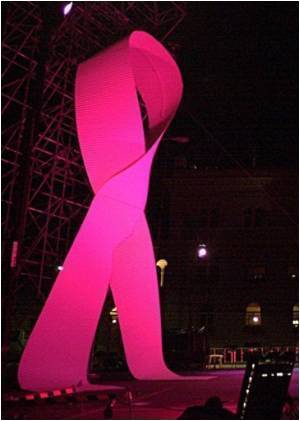A new genetic biomarker indicates an elevated risk for developing breast cancer, according to scientists.

The particular repeated DNA sequence in the control (promoter) region of the estrogen-related receptor gamma (ERR-?) gene - AAAG - contains between five and 21 copies and the team found that patients who have more than 13 copies of this repeat have a cancer susceptibility rate that is three times higher than those who do not.
They also discovered that this repeat doesn't change the actual protein being reproduced, but likely changes the amount.
The group sequenced a specific region of the ERR-? gene in approximately 500 patient and volunteer samples. While the gene has previously been shown to play a role in breast cancer susceptibility, its mechanism was unknown.
The findings appeared in an upcoming edition of the journal Breast Cancer Research and Treatment.
Source-ANI















